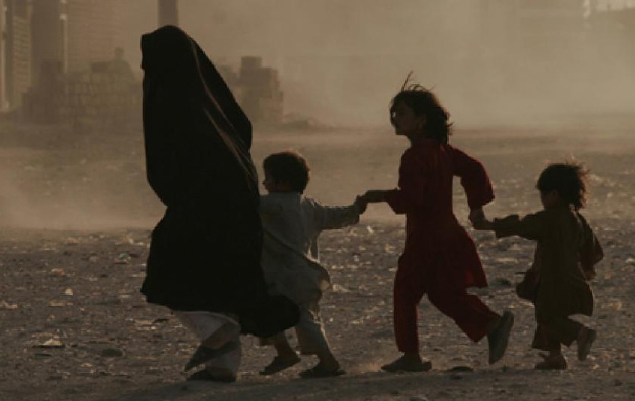KABUL - Half a million Afghan children have been affected by a looming drought in the country, a UN agency said on Tuesday, fearing food insecurity in impoverished Afghanistan.
At least 10 of the country’s 34 districts were worst hit while 20 to 30 percent if water sources are going dry, threatening the lives of about a million people, UNICEF said in a statement.
An additional two million people could feel effects of the drought over the coming months. "These areas have pre-existing high rates of malnutrition. Without adequate nutritious food and safe water for drinking, children's health will only worsen."
The UNICEF appealed for $10 million to help children and their families in drought-affected provinces. Food insecurity and reduced access to drinking water were beginning to take toll in the 10 worst-affected provinces, it added.
Adele Khodr, UNICEF representative in Afghanistan, said: “The priority is to prevent the situation from deteriorating, by responding to the needs of children and families in the worst affected areas.”
Some 1.6 million children and 443,000 pregnant and lactating women suffer from malnutrition across Afghanistan, according to the statement. "The priority is to prevent the situation from deteriorating by responding to the needs of children and families in the worst-affected areas," said Khodr.
The UNICEF and other partners in the nutrition cluster estimate emergency nutrition assistance is needed for 92,000 children and 8,500 pregnant and lactating women.
An estimated 100 families from the Bala Murghab district of Badghis have been forced to move to Herat to find alternative work due to failed crops and to access safe drinking water, according to the statement.
Among the affected provinces, Bagdhish, Bamyan, Daikundi, Ghor, Helmand, Kandahar, Jawzjan, Nangarhar, Nimroz, Nuristan, Takhar, and Uruzgan are of critical priority for nutrition and water, sanitation and hygiene assistance. (Pajhwok)
Home » Afghanistan » Half a Million Afghan Children Affected by Drought: UN
Half a Million Afghan Children Affected by Drought: UN

